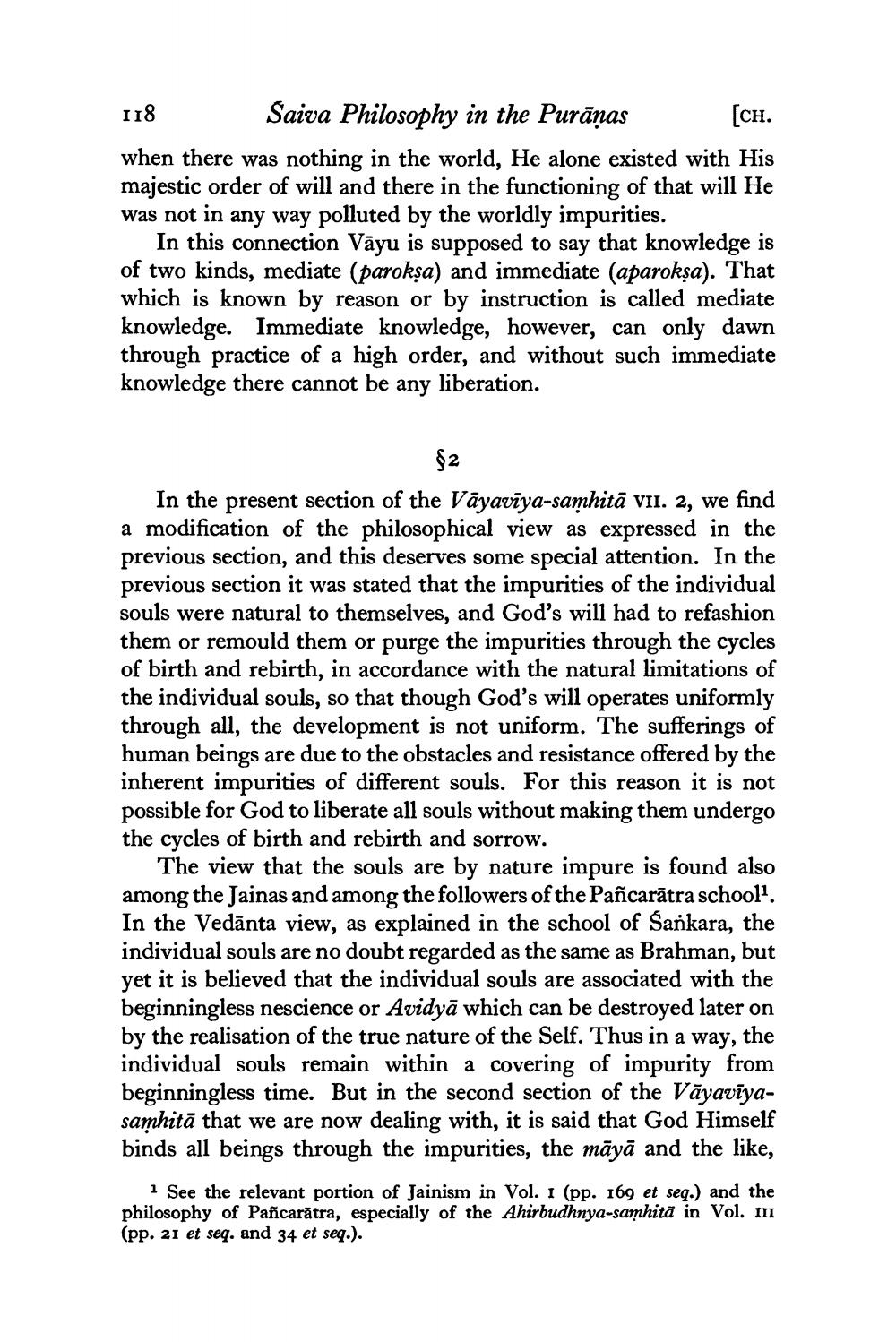________________
118
Saiva Philosophy in the Purānas (CH. when there was nothing in the world, He alone existed with His majestic order of will and there in the functioning of that will He was not in any way polluted by the worldly impurities.
In this connection Vāyu is supposed to say that knowledge is of two kinds, mediate (parokşa) and immediate (aparokşa). That which is known by reason or by instruction is called mediate knowledge. Immediate knowledge, however, can only dawn through practice of a high order, and without such immediate knowledge there cannot be any liberation.
$2
In the present section of the Vāyavīya-samhitā VII. 2, we find a modification of the philosophical view as expressed in the previous section, and this deserves some special attention. In the previous section it was stated that the impurities of the individual souls were natural to themselves, and God's will had to refashion them or remould them or purge the impurities through the cycles of birth and rebirth, in accordance with the natural limitations of the individual souls, so that though God's will operates uniformly through all, the development is not uniform. The sufferings of human beings are due to the obstacles and resistance offered by the inherent impurities of different souls. For this reason it is not possible for God to liberate all souls without making them undergo the cycles of birth and rebirth and sorrow.
The view that the souls are by nature impure is found also among the Jainas and among the followers of the Pañcarātra school1. In the Vedānta view, as explained in the school of Sankara, the individual souls are no doubt regarded as the same as Brahman, but yet it is believed that the individual souls are associated with the beginningless nescience or Avidyā which can be destroyed later on by the realisation of the true nature of the Self. Thus in a way, the individual souls remain within a covering of impurity from beginningless time. But in the second section of the Vāyavīyasamhitā that we are now dealing with, it is said that God Himself binds all beings through the impurities, the māyā and the like,
1 See the relevant portion of Jainism in Vol. 1 (pp. 169 et seq.) and the philosophy of Pancarātra, especially of the Ahirbudhnya-samhitä in Vol. II (pp. 21 et seq. and 34 et seq.).




